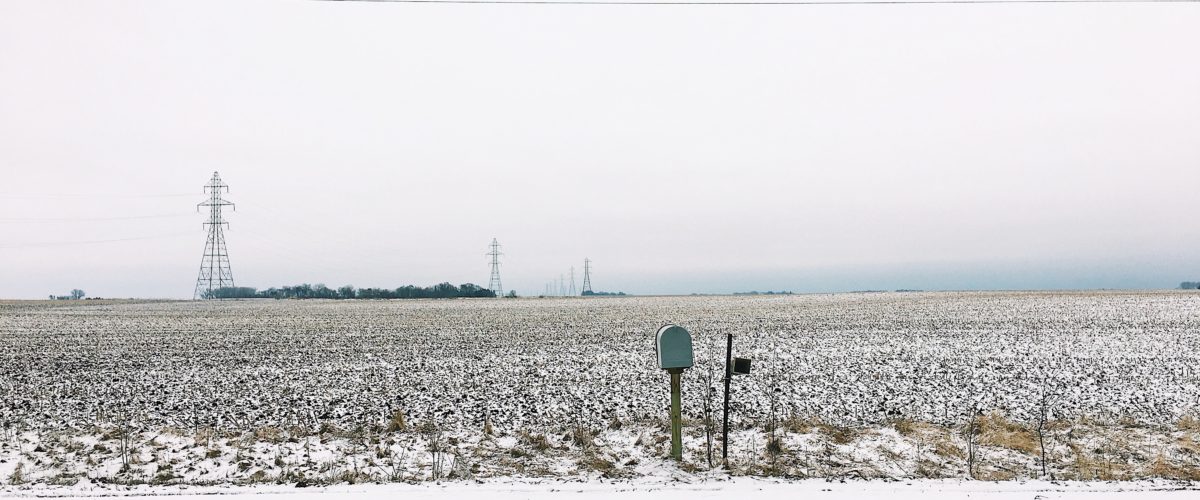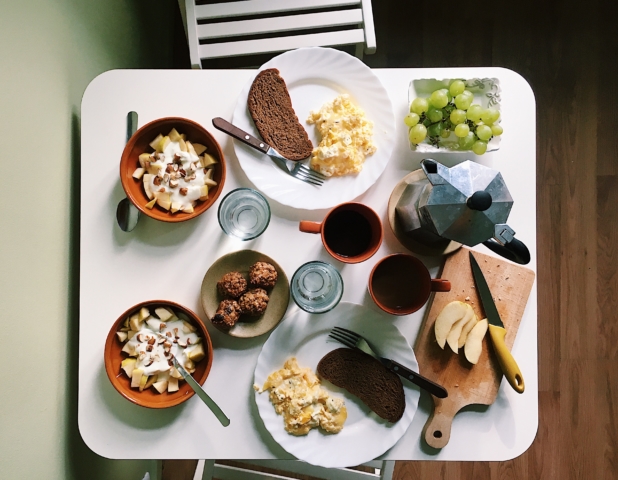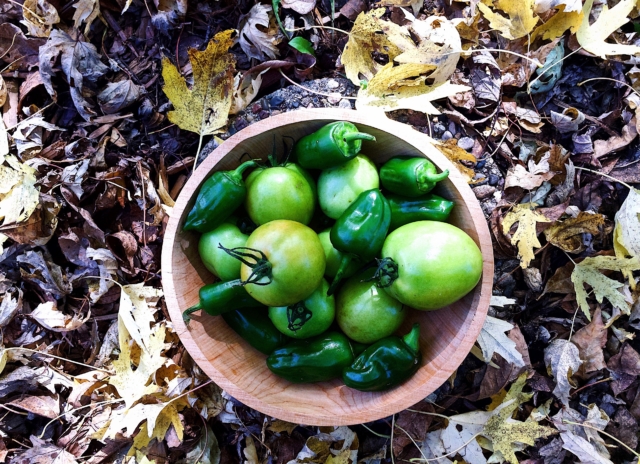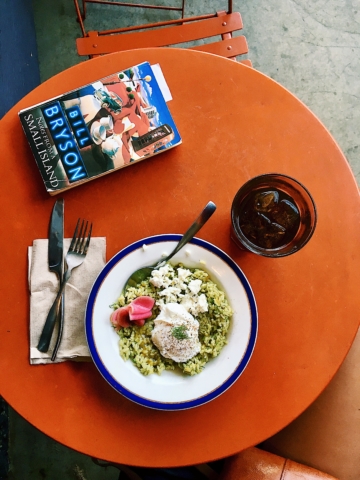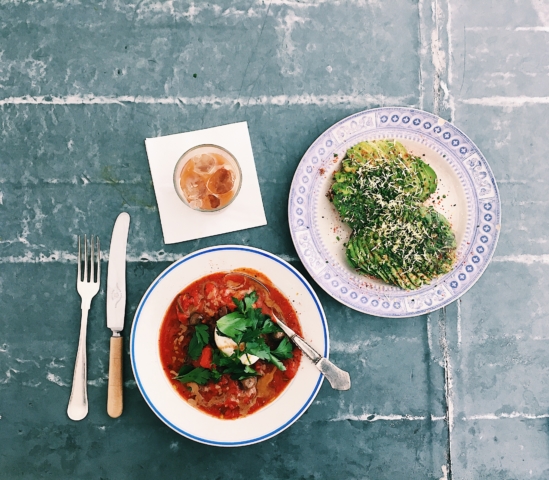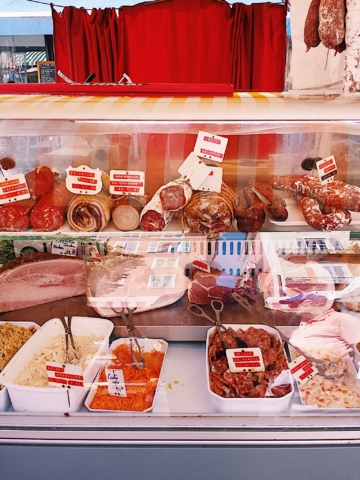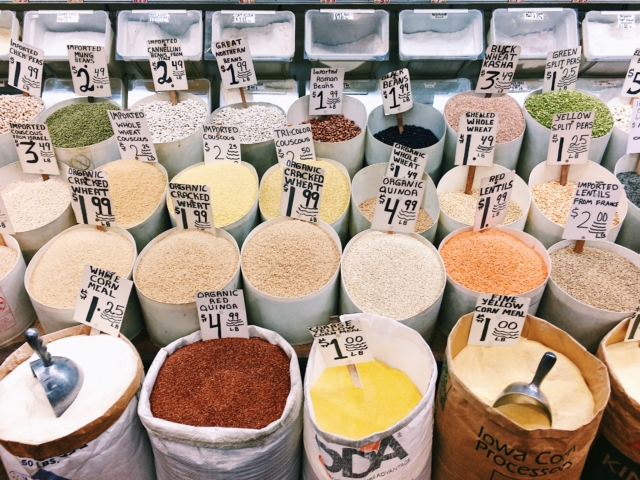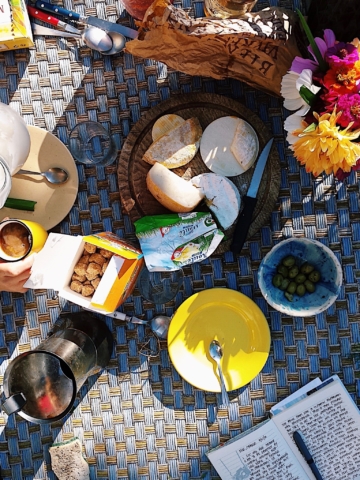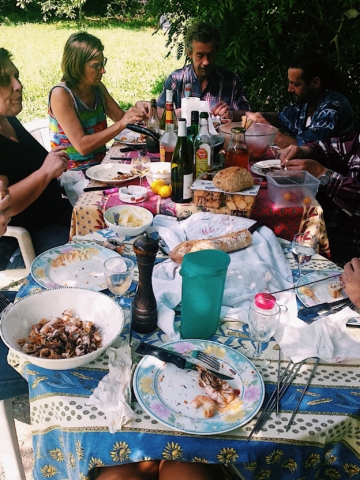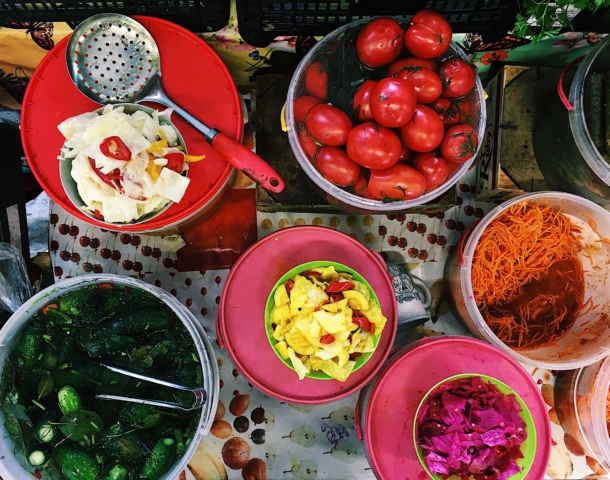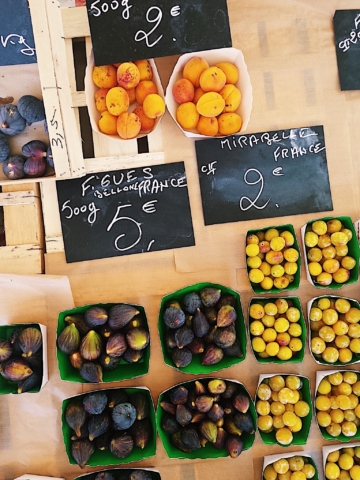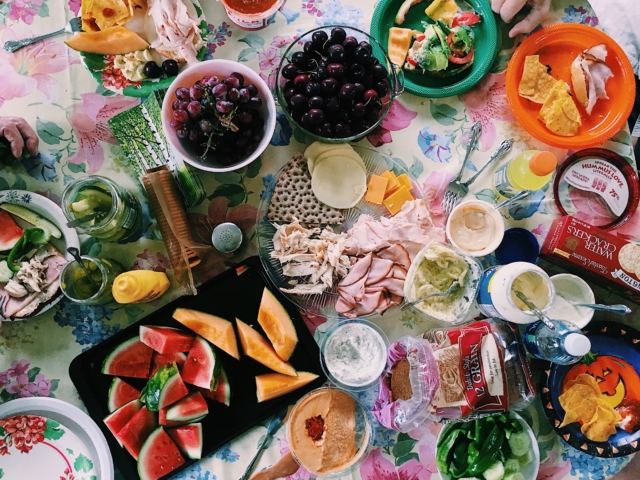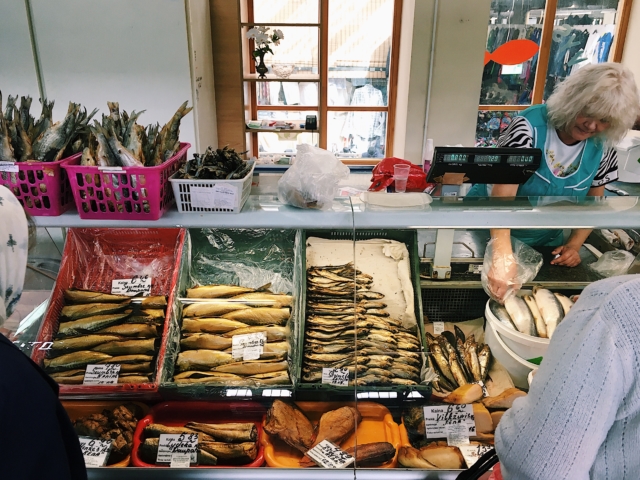Body and soul contain a thousand possibilities out of which you can build many I’s. But in only one of them is there a congruence of the elector and the elected. Only one – which you will never find until you have excluded all those superficial and fleeting possibilities of being and doing with which you toy, out of curiosity or wonder or greed, and which hinder you from casting anchor in the experience of the mystery of life, and the consciousness of the talent entrusted to you which is your I. [Dag Hammarskjöld, Markings]
When I made the decision to move from Chicago, my residence of eleven years, to my parents’ farm in rural, southwestern Minnesota for an undefined period of time, anchoring was not my main goal. I wasn’t anticipating a revival in spirit, a broadened understanding of love, a fullness of opportunity, an infatuation with the horizontal expanse. I was expecting a few months of quality time with my parents, some time to develop my pottery skills, and space to think about the next thing.
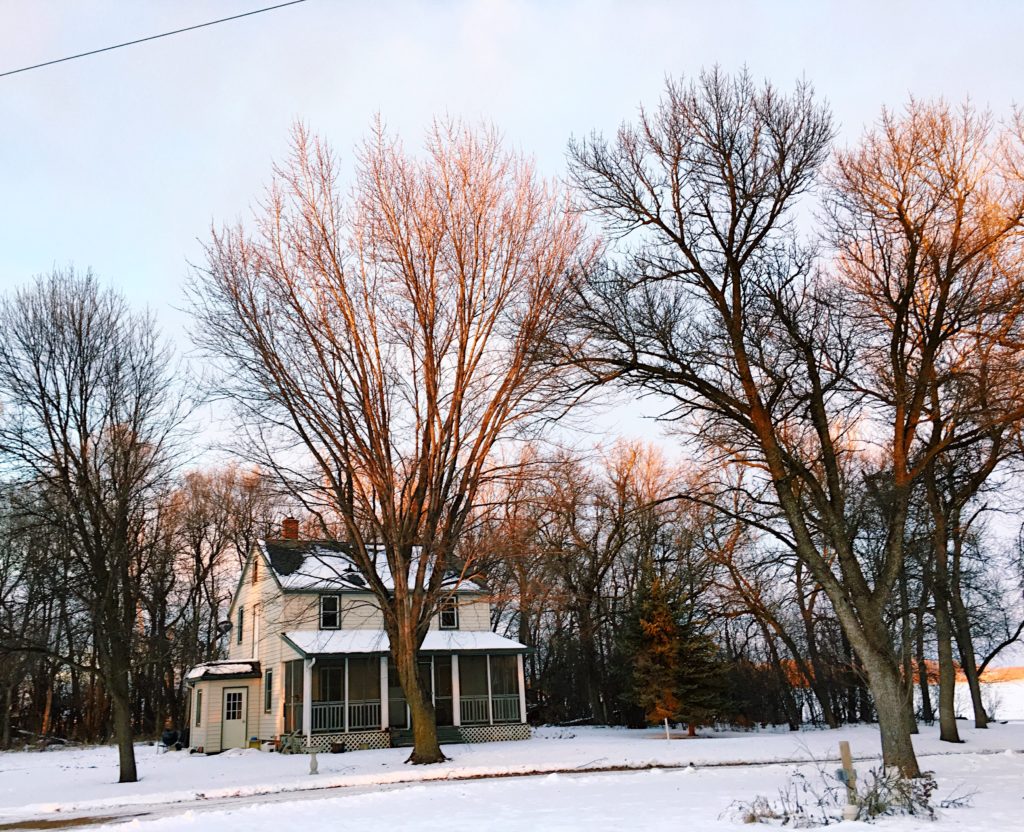
Of the lessons learned in these seven weeks, including awareness and space, my latest is the role of scarcity in rural life. Here on the prairie, the sky is everything—it’s all horizon. To risk over-quoting Naomi Shihab Nye, “There is a therapy in fields. East, west, nothing speaks but the sky.” Speak it does. But when it comes to population and availability, scarcity speaks. The lack of people, an overwhelming contrast to Chicago, drives the societal landscape and impacts the experience of life in this pocket of the prairie. The nearest town of 1,500 people is six miles away, and it’s a common occurrence to drive twenty miles without passing a fellow traveler on the road.
On a return trip to Chicago a few weeks ago, I encountered questions about my new life in Minnesota: What do my days look like? Am I bored? Can I get sushi in Dawson? The rural concept, this reality of a population of 1,500 people, is incomprehensible to urban dwellers, understandably so. The incongruity of this life, coupled with my slow-living, puzzles many of them. As these questions came at me, and I put to words my reflections on this extended sabbatical in rural Minnesota, I found myself unable to hold back the outpouring of support for the positivity of scarcity.
This scarcity of people in rural Minnesota drives a thirst, a yearning for involvement. When a poetry workshop appears in the community education brochure, you sign up. When the local brewery taps a new beer, and a delicious one at that, you drink it. When a third of your town’s population joins together to have an interfaith dialogue about Islam, you go. You go to art show openings and plays about civil rights and live music events and storytelling evenings. You glance up at the stars, shining in vibrancy, on the cold winter nights. Under no circumstances do you miss a good sunset or opportunity for a walk on the gravel road. And when your parents appreciate and encourage your cooking, you become immersed in Moroccan food, filling the refrigerator with rose harissa and preserved lemons and za’atar.
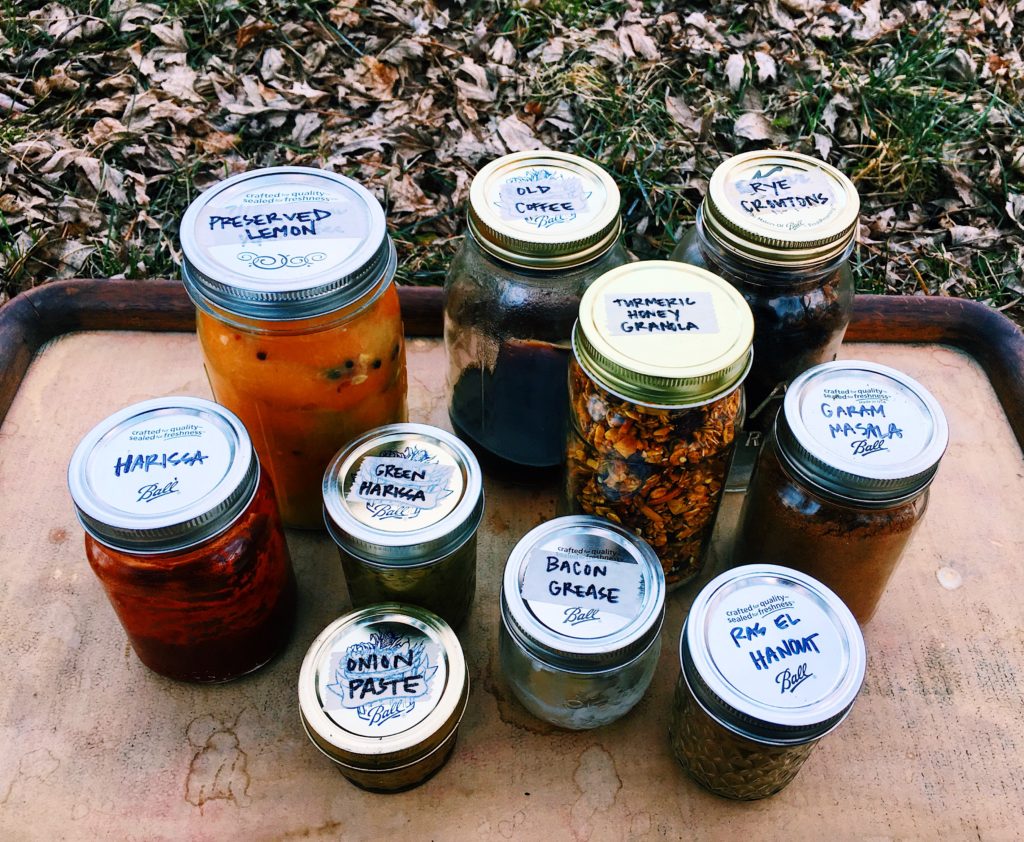
My days here have been richer in cultural experiences than the same seven weeks likely would have been in Chicago. The thing is, when you have a wealth of opportunity at your fingertips, you ignore it. You take it for granted. You forget that you should attend and support the things you believe in. You know someone else will be there so you don’t go, even if you did have all the best intentions. And sometimes you feel like you’re just one person in the big city—what can you really do to impact things, anyway?
Life here couldn’t be more of a contrast. In a series of unexpected and pleasant circumstances, I’ve found myself in a realm where anything seems possible: brainstorming ways to create a local food co-op, organizing a poetry dinner party, pursuing grant money for an arts project, figuring out a way to incorporate new forms of cooking into the community, celebrating the cultural diversity of small towns, hosting spoken word events at the local town hall, discussing possible uses for renovated old buildings. People around here make things happen, possibly because there’s an understanding that if I don’t, no one else will. But also because there’s an opening, a freedom, a magnetic current running beneath the surface of everything.
The brewery in the next town quickly became my favorite place to meet people: friends and acquaintances of my parents, old classmates, musicians, neighbors, cheese makers, peers who share my current experience of moving back home after a decade or more of city life. In so many ways it champions the argument for bringing beer production back to the local arena: fantastic beer, strong community involvement – a local potter made the membership beer steins, and the openness of the building’s layout provides space for conversations, introductions, card games, storytelling, and connection.
I’m spending a few days each week learning pottery from a master craftsman. These hours, filled with the work of my hands and the light of the morning sun, are balm for my soul and encouragement to continue down this emerging creative path.
And as I continue down this path, I will keep engaging in the mystery. I will look for opportunities. I will take on some of the boldness mirrored by so many around me. I will say yes. I’m still exploring the consciousness of the talent entrusted to me, this I, as Dag Hammarskjöld mentions. But I certainly hope to find it. I don’t know how long I’ll be here: maybe a few more months, maybe longer. But I do know one thing – this is the best place for me to be right now as I journey towards this I, and I will continue to experience the mystery as I cast anchor in the vibrant scarcity of rural life.
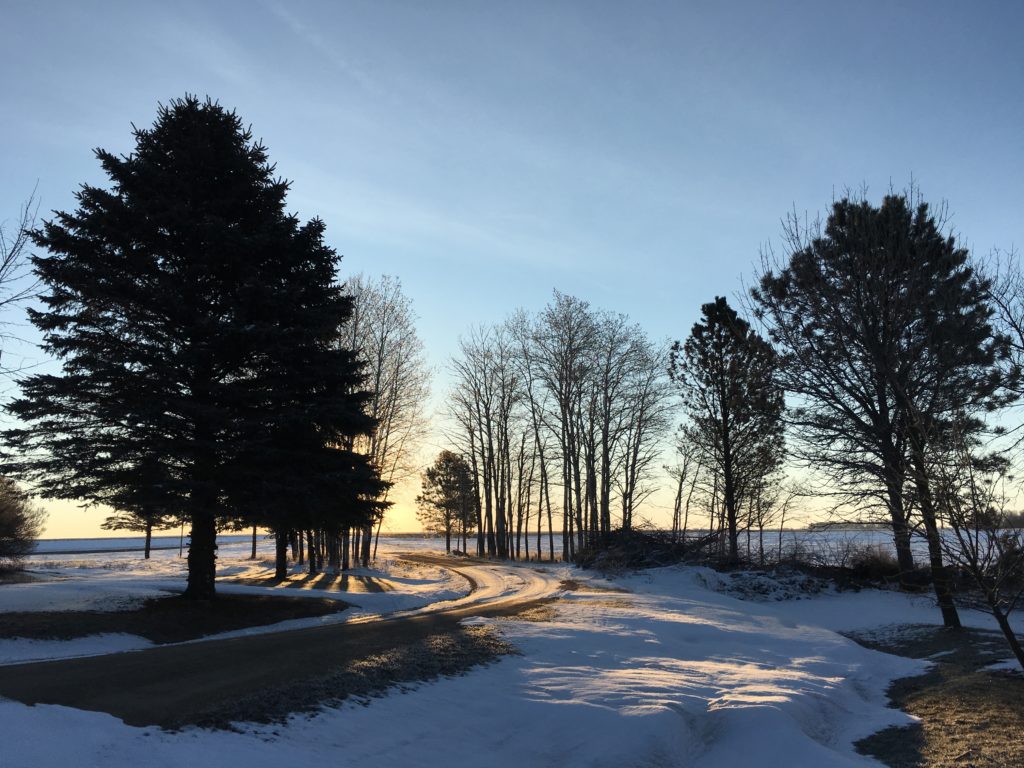

Elisabeth A. Fondell is a writer, potter, and food enthusiast living in the rural Midwest. She is currently working on Food Stories From Houston County, a project documenting stories of culinary resilience in Minnesota’s southeastern-most county through the Crystal Creek Citizen-Artist Residency.
Elisabeth began focusing on place-based food writing after receiving a grant from the Southwest Minnesota Arts Council to create a body of work celebrating the intersection of food and culture. See that exhibit here.

